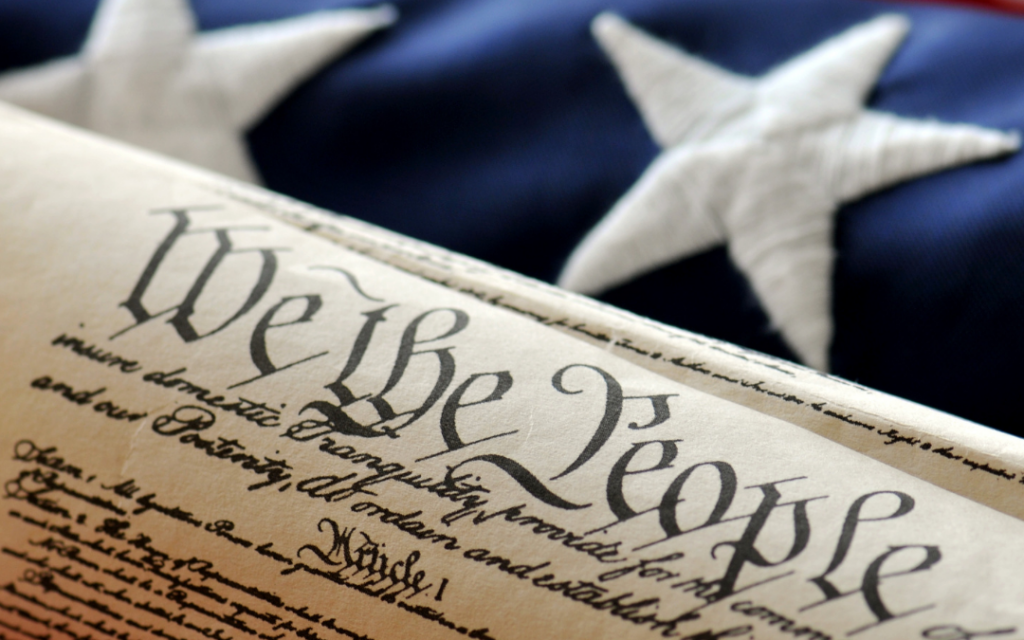Was the ban on Trump’s social media accounts constitutional?
If I’m a CHL holder can my friend stop me from bringing my handgun into her house?
Legally, can my employer monitor me? Even when I’m working from home?
I’m lawyer Alexandria Serra and you’re about to find out.
Did you know that only 39% of Americans know the three branches of government even exist and can name all three? It goes without saying that there’s a serious deficit in how many people have actually read the Constitution and know what it means. The Constitution only prevents infringement on your rights by the government. If you’re a private citizen, if you’re a private employer, people shouldn’t be screaming about the Constitution because, with very limited exceptions, you can make the rules for your home, your business, and your life.
Here are a few examples of Constitutional Law, what applies and what doesn’t. The government is pretty general, we’re talking Federal, state government, local government, so the police are part of the government, and they can’t infringe on these types of rights. This also applies to a government employer or peacefully assembling in public. Basically the government can infringe on your constitutional rights, but your private employer, your friend, a private business, those people can make their own rules as long as they’re not discriminatory based on race, sex, and/or religion.
Diving deeper into Trump’s ban on social media, even on Stripe, they weren’t allowing contributions to campaigns and whatnot. Totally legal. All of those platforms are private entities, so if you’re owned or operated by the government, the Constitution applies; if you’re not, you’re private and you can do what you want, that’s totally legal. If you’ve posted something on Twitter or Instagram and then “Shadowbanned” by posting around hashtags or something like that, that’s another way that they can censor you because you violated terms of use, totally absolutely constitutional. Now, the same thing with different kinds of speech at work, look at those terms and rules and regulations super carefully.
It’s important to know that the constitution is a floor, not a ceiling. The floor is basically, “This is the minimum amount of rights that you would get“; States can create more laws that are more what we call “permissive” allowing you to do more things. For example, when we’re talking about the Second Amendment, Supreme Court has interpreted the Second Amendment to mean that states cannot prohibit you from having a handgun in your home.
Now, all states differ on their concealed, open carry laws, Texas is a very permissive state, they allow you to do more things with your weapons than many other states, but the Constitution is a floor that states can build on with more permissive loss. However, stores like for example, Whole Foods has a “No Guns” ban, you can’t take your concealed handgun into Whole Foods. They have the right to refuse you service, that is perfectly constitutional because they are a private employer.
The same thing with that example about my friend, if my friend doesn’t want guns in her home, she has kids, she’s anti-gun, whatever the heck it is, she has the right to refuse me entry on her private property as a private citizen regardless of whether I can legally carry that handgun. Those things are very relevant to what’s happening right now and as a private business, as a private person don’t be afraid to stand up for those things.
On the other hand, apartment complexes can’t ban you from having guns in your home in Texas, they can’t ban your guests from having guns in your home if you make the decision to do so, it just depends on business, citizen, what the state laws are.
Finally, let’s talk a little bit about the Fourth Amendment and what the government and private employers can and cannot do. No illegal search and seizure without probable cause or a warrant, you have more expectation and privacy in certain places like your home than you do in other places like your car. But private employers are different, if they have a reason to think that you’re violating policies, that you’re stealing equipment, that you’re doing all that kind of stuff, they can most certainly search any business belongings and in some cases, depending on what they’ve put in their employee handbook, your personal belongings as well and they definitely have the right to monitor your activities while you’re working from home, on a work computer or what have you. Make sure you know what the policies are and the constitution, I will say this again, does not apply to those private entities.
If you have any questions about this, this is going to be one of my several posts about the Constitution and sort of civics and government because so many people don’t understand what the heck is going on.



